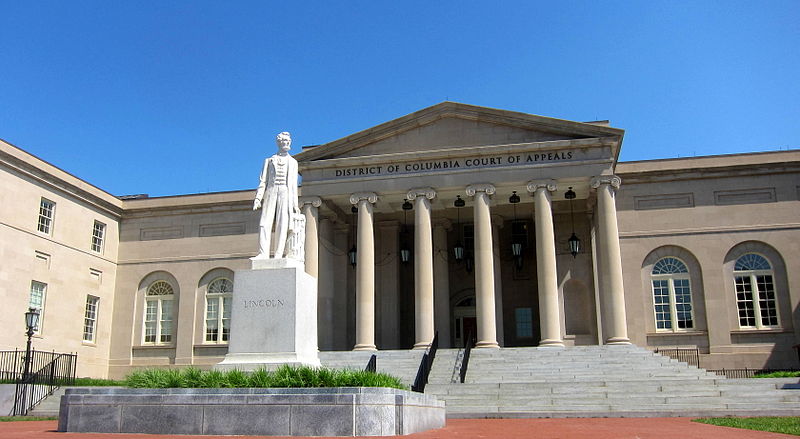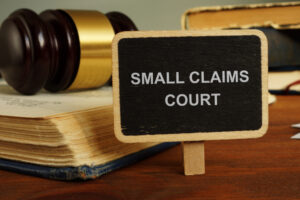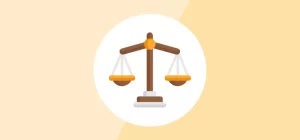What is an Appeal in Court
What is an appeal?
what does it mean to appeal a court case
If you disagree with the decision reached after your trial, you can file an “appeal.” An “appeal” is a request to have a higher court change or reverse a judgment of a lower court.
When you appeal, the entire case is reviewed by a higher court. The appeals court will look at the evidence that was presented to the trial court to decide whether some legal error was made. Depending on what the appeals court decides, it can set aside, confirm, or modify the trial court’s judgment and could even order a new trial.
When can you file an appeal?
Not every court order can be appealed. For a list of many of the orders that you can appeal, study Rule 3A(b) of the Nevada Rules of Appellate Procedure (if you are appealing a district court judgment) and Rule 72A of the Justice Court Rules of Civil Procedure (if you are appealing a justice court judgment).
Appeal deadlines
The time you have to appeal a civil judgment depends on when the judgment was “entered” and “noticed.” Missing your appeal deadline can preclude your appeal.
- Justice court: File notice of appeal within 20 days after service of notice of entry of judgment
- District court: File notice of appeal within 30 days after service of notice of entry of judgment
Appeal costs
Filing an appeal requires paying filing fees and posting bonds. However, low-income individuals can request fee waivers and bond waivers.
The Appeal Process Unveiled
Appeals provide a mechanism for parties to challenge decisions that they believe were wrongly decided by the trial court. While some cases are resolved through written briefs, others are selected for an “oral argument,” during which appellate lawyers present their arguments before a panel of judges. This structured discussion centers on the legal principles in dispute, with each side typically allotted around 15 minutes to present their case to the court.
Seeking Supreme Intervention
Should a litigant find themselves on the losing end in a federal court of appeals or the highest state court, they can seek a “writ of certiorari” from the Supreme Court. This document requests the Supreme Court’s review of the case. However, the Court holds the discretion to accept or decline the review. Generally, the Court agrees to hear cases of exceptional legal importance or when different federal appellate courts interpret a law differently.
Steps to File an Appeal
Determine if you can appeal
Even though you may not be able to appeal a particular court order, there might be other avenues you can use to challenge the order. Talking to a lawyer about your case is the best way to evaluate your options.
Calculate appeal deadline
Carefully calculate your appeal deadline based on the rules for your court. Missing the deadline can preclude your appeal.
File notice of appeal and cost bond
Justice court appeals
- File Notice of Appeal
- Pay $97 filing fee (can request fee waiver)
- Post $250 cost bond (cannot be waived)
District court appeals
- File Notice of Appeal
- Pay $24 district court and $250 supreme court filing fees (can request fee waivers)
- Post $500 cost bond (cannot be waived)
- File Case Appeal Statement
Serve notice of appeal
You must serve the notice of appeal on the other parties after filing.
Stay judgment execution
Filing an appeal does not automatically prevent the other side from collecting a judgment in their favor.
Justice court stays
File a supersedeas bond to stay collection of judgment.
District court stays
File a motion to stay judgment pending appeal. Will likely need to post a supersedeas bond.
Order transcript or statement of evidence
Justice court appeals
Within 10 days after filing notice of appeal:
- Order transcript and deposit $100
- Or file Statement of Evidence if no transcript
- File Statement of Points on Appeal
District court appeals
Within 15 days after appeal docketed:
- File Transcript Request Form
- Or file Certificate of No Transcript Request
- Or file Statement of Evidence if no transcript
File appellate brief
Justice court appeals
The district court may order parties to submit briefs on deadlines provided.
District court appeals
Parties must file briefs with the supreme court:
- Appellant opening brief
- Respondent answering brief
- Appellant reply brief
A Glimpse into Varied Appeals
Different types of cases follow distinct paths during the appeal process:
Civil Case Appeals
In civil cases, either party can appeal the verdict.
Criminal Case Appeals
Defendants can appeal a guilty verdict, but the government cannot appeal a not guilty verdict. In criminal cases, appeals may relate to the imposed sentence following a guilty verdict.
Bankruptcy Case Appeals
Bankruptcy case appeals can be directed to a district court or a specialized bankruptcy appellate panel consisting of three bankruptcy judges. Following an initial bankruptcy appeal, the losing party can escalate the appeal to the court of appeals.
The Art of Argumentation
Appeals are reviewed by panels of three judges who work collectively. The appellant, the party appealing the decision, presents their legal arguments in a document termed a “brief.” This document aims to persuade the judges that the trial court erred, justifying a reversal of the decision. Conversely, the “appellee,” the party opposing the appeal, presents arguments in defense of the trial court’s decision.
Conclusion
Key points
- Carefully calculate deadlines and follow rules
- Consider requesting fee/bond waivers if eligible
- Prevent other side from collecting judgment by requesting stay
- Order transcript or statement of evidence promptly
Next steps
Thoroughly review court rules for appeals and seek help from an attorney if possible. Pay close attention to deadlines and document filing requirements.
FAQs about Court Appeals
1. What is the purpose of an appeal in court? An appeal in court allows parties dissatisfied with a trial court’s decision to have it reviewed by a higher court, ensuring fairness and justice.
2. Can any decision be appealed? Not all decisions can be appealed. Generally, decisions with legal errors or significant implications can be appealed.
3. Can the Supreme Court refuse to review a case? Yes, the Supreme Court can choose not to review a case if it doesn’t meet specific criteria for review.
4. How does the appeals process differ in criminal and civil cases? In criminal cases, the defendant can appeal a guilty verdict, while in civil cases, either party can appeal the verdict.
5. What happens if the appeals court finds an error in the trial court’s decision? If the appeals court identifies an error, it can reverse or modify the decision, sending the case back to the trial court if necessary
Can I present new evidence during my appeal? No, appeals courts only review the evidence presented at the original trial. You cannot introduce new evidence on appeal.
What if I miss my deadline to file a notice of appeal? If you miss the deadline to file your notice of appeal, you may lose your right to appeal. There are very limited exceptions that could allow you to file a late appeal, but meeting the deadline is critical.
How long does an appeal take? The appeal timeline varies greatly depending on the court. Justice court appeals are typically resolved faster than district court appeals. Supreme court appeals can take over a year in some cases.
Who hears my appeal? Justice court appeals are heard by a district court judge. District court appeals are heard by the Nevada Supreme Court or potentially the Nevada Court of Appeals.
What are my chances of winning an appeal? Most appeals are unsuccessful because appeals courts give great deference to lower court decisions and focus on procedural issues and legal errors. But appealing can be worthwhile in some cases.








